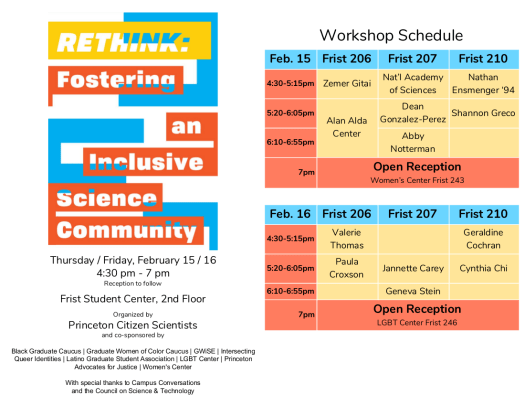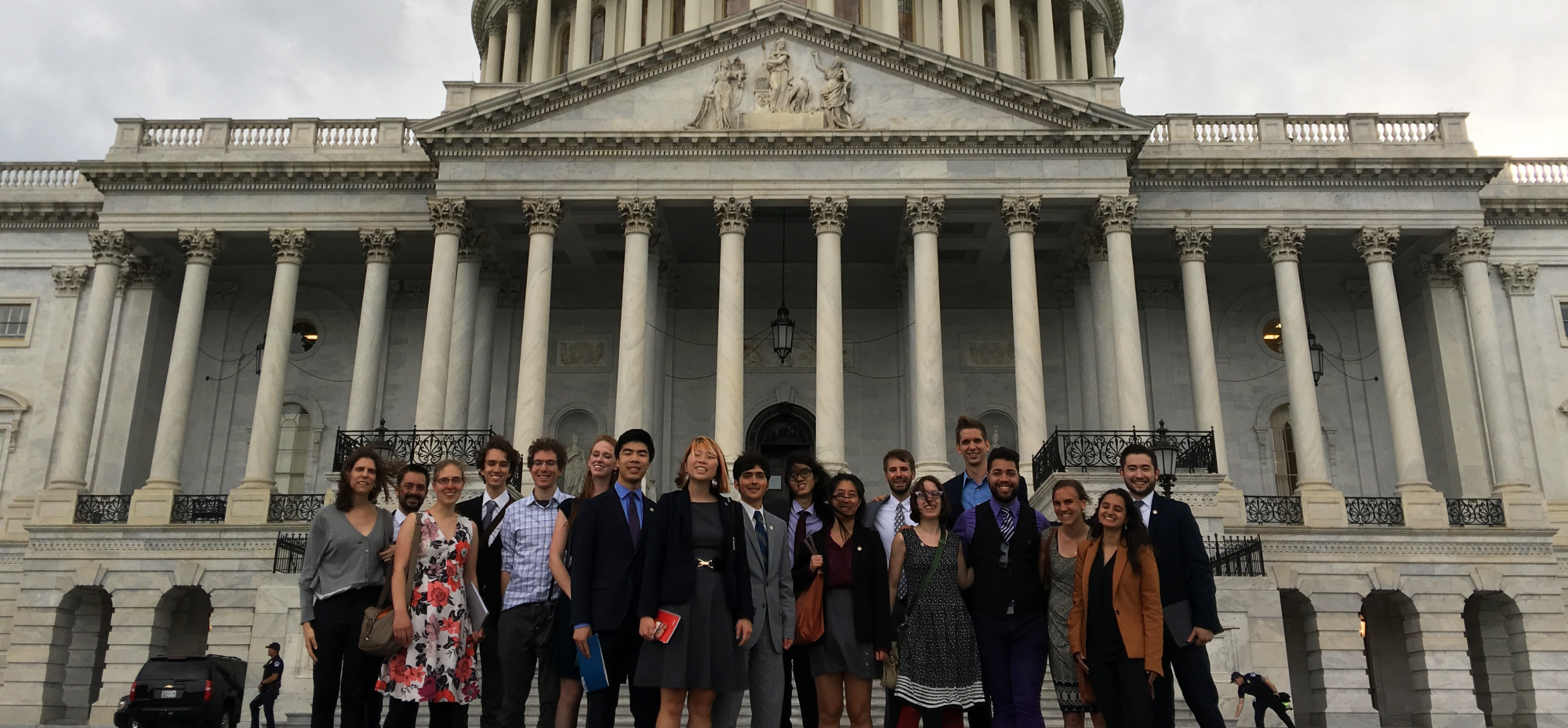Science and Intersectionality

Join us for discussion on science & society at next week’s
Science & Intersectionality Workshop
Who: You (and a friend)!
When: February 15th & 16th, 4:30-7PM, reception to follow
Where: Frist Campus Center, 200 Level
What: Come learn and discuss with campus and community members! Topics include: the consideration of science as an institution and its place in a historical context, the intersection of the scientific community and society, and the individual scientist’s responsibility to engage with contemporary social issues. Each evening will start with a number of concurrent presentations to choose from, followed by an informal reception with food and space for conversation and debriefing.
Check out this amazing lineup of speakers and workshops!
- Empowering the Future: Teaching Old Institutions New Tricks | National Academy of Sciences
- Connection is a Choice | Alan Alda Center for Science Communication
- Being authentic and breaking stereotypes while navigating your scientific career | Dean Gonzalez-Perez
- Beyond the Bench: The Socially Responsible Scientist | Abby Notterman
- An Intersectional Approach to Understanding Barriers to Success in STEM | Geraldine Cochran
- The Science of Science Advice: Improve It | Valerie Thomas
- The Ethics of Algorithms | Nathan Ensmenger
- Story Collider: Seeing Ourselves in Science | Paula Croxton
- Promoting Inclusiveness in molecular biology – a case study | Zemer Gitai
- The Roles of NSF in Promoting Inclusiveness | Janette Carey
- Creating Inclusive STEM Classrooms | Geneva Stein
- Diversity in the Sciences: Where are all the people? | Cynthia Hill
- Tools for Effective Science Communication | Daniel Steinberg
Questions and topics to be addressed:
Reflect: Science, Society and History: What are the sciences’ connections to large social institutions such as governments and large corporations and how do the sciences recreate or perpetuate power structures, hierarchies, and systemic oppression present in these institutions?
Ethical Implications of Research: What is the science community’s responsibility and capacity to engage with and address social and ethical implications of their research?
Rethink: Fostering an Inclusive Science Community: How do we, as individuals and a scientific community, actively rethink and foster an inclusive and intersectional community? How can we engage with existing barriers and systemic biases in the sciences, and within our respective fields of study?
Reimagine: Science Communication and Outreach: The narrative of scientific discovery is dominated by white, western, male figures. How do we encourage everyone to rethink not just past contributions, but also reimagine the present and future course of the scientific endeavor? Who do we see as contributors, and how do we mobilize ourselves and others to recognize and embrace agency, seeing oneself as an active contributor to science?
Brought to you by the Princeton Citizen Scientists along with cosponsors: Black Graduate Caucus | Graduate Women of Color Caucus | GWiSE | Intersecting Queer Identities | Latino Graduate Student Association | LGBT Center | Princeton Advocates for Justice | Women’s Center
With special thanks to Campus Conversations and the Council on Science & Technology
Princeton Citizen Scientists Meetings
Every Thursday, 6-7:30pm
Location: Second Floor, 221 Nassau St, Princeton, NJ 08540
Ongoing Projects
- Briefing on Solar Energy Policy for NJ Lawmakers
- Educational Outreach to Local Public Schools
Past Events and Projects
Teach-ins at the Princeton Public Library
Thursday October 12, 6:30-9pm
Location: Princeton Public Library, 65 Witherspoon St Princeton NJ 08542


March to Ban the Bomb

Professional Development Trip to Washington, DC
A day trip to Washington, DC, to meet with elected representatives of the congress and senate staffers. We had 18 attendees and met with a total of 22 different Congress members’ offices!
March for Science
See here for more information.


Day of Action
Website: https://dayofaction.princeton.edu
Facebook event: https://www.facebook.com/events/302154830182951/
Writing and Communication Workshop, with Bulletin of Atomic Scientists
Our workshop trained participants to engage policymakers and the general public. It offers tips and insights into using social media, television, radio, and other media platforms to advance ideas. It is designed to encourage participants to develop and try out new communication skills, and connect their research findings to those outside their field of expertise.
Book Club: “A Scientists Guide to Talking with the Media”


You must be logged in to post a comment.